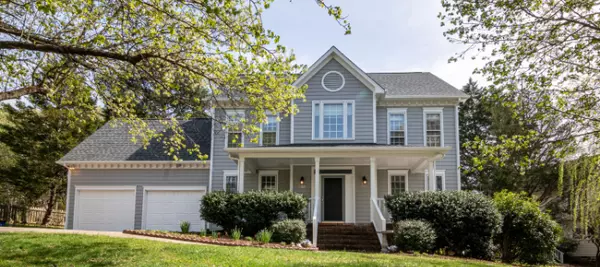Want To Rent Out A Property? Read This First
Want to rent out a property? Read this first.
Determine what type of property you want to rent out
The next step is to determine what type of property you want to rent out. This will be based on your budget, needs and goals. For example, if you're looking for a short-term rental property that can generate a high return on investment (ROI), then a vacation rental may be the best option for you. However, if you're looking for a long-term rental property that will provide you with steady monthly income, then a single-family home or condo may be a better choice.
Consider your location preferences
Another important factor to consider when renting out a property is your location preferences. Do you want to rent out a property in your hometown, or do you want a property in another city? It depends on what kind of business you're thinking about.
The closer you get to your city centre, the higher the rental rates and property values will be. These areas are typically popular with young professionals and retirees who want to live in close proximity to work and entertainment spots.
If you live near big cities like Burnaby, Surrey, or Victoria in British Columbia, you can take advantage of properties that are located in cities that have robust economies and high rental rates.
Research important details about a prospective rental property.

You'll need to do your research carefully when looking for rental properties in order to determine the rent you will charge. Here are a few factors you may want to consider:
Does the property come with appliances? If so, what type of appliances does it have (dishwasher, air conditioning units, etc.)? Is there enough space in the kitchen for more appliances if needed?
Is the property pet-friendly? If you're planning to rent out a property and allow animals then you need to make sure that this does not break any other prior agreements with current tenants. Some landlords are more lenient towards certain types of pets. For example, some landlords allow small dogs in their properties but not large breeds like Golden Retrievers. Some landlords don't charge pet fees, but others may charge an extra monthly rent to cover the cost of damages that may occur.
What is the parking situation like for the property? A building in a busy city that has private parking will be much more expensive to acquire but will also come with a perk that can allow you to charge much higher rent prices.
What is the current state of the property? You should always take a thorough look at a potential rental property. Take stock of what minor and major renovations need to take place to create a worthwhile experience for the tenants. More amenities, more polish, more care will mean a higher premium. Take note of the condition of the floors, walls, ceiling and windows in different areas of the building. Also, check if there are any cracks in the foundation or signs of infestation from pests. What may look like a wonderful deal upfront can turn into a money sink very quickly.
Is it worth renting out a property?
Here are the cons associated with renting to other people:

Initially, the biggest hurdle to overcome is finding the capital to acquire a rental property. When buying your first property as an investment, know that there will be extra costs including real estate fees, lawyer fees, land transfer taxes, and more.
The money required to maintain a rental property is also not just a drop in the bucket. You'll need to budget for repairs and maintenance costs, as well as for monthly bills like electricity, water, and heating. If you cannot or do not want to do needed repairs yourself, you will need to hire contractors or even a superintendent.
You will need to advertise your rental property. You'll need to create a listing online and offline, and you may also need to employ a property manager to help find the right kind of tenant.
The cost of evicting a tenant: if a tenant doesn't pay rent or breaches their lease, you may need to go through the process of eviction. This can be costly and time-consuming, so it's important to screen a potential tenant carefully before renting to them.
Before you list a rental unit, you need to calculate the expected monthly rent and the expenses that will be required for the rented-out property. You can do this by adding up all your payments such as taxes, mortgage, insurance, utilities, maintenance, property management, provision for repairs/upgrades, and other potential costs.
You should also be aware of the vacancy rate, which shows you what percentage of rentals are not occupied at any given time. You can find this information by contacting your local real estate office or property management agency.
Here are the benefits associated with being a landlord:

The income you can expect will be steady and substantive if you keep your tenants happy. Remember that your renters are, in way, your customers and the building is your business. Rents are only part of your contractual relationship. You also have a part to play to attract responsible renters.
There will be tax benefits associated with owning a property that you can rent out. If your rental income is greater than the expenses you incur (including interest and principal payments on your mortgage), then you can claim this investment as a source of income.
If you're able to realize a positive cash flow with your rental properties, then it is well worth the time and effort in the long term. If you manage the property well enough, you could even generate enough income to acquire more rental properties in the long run.
Decide how much to charge for rent?
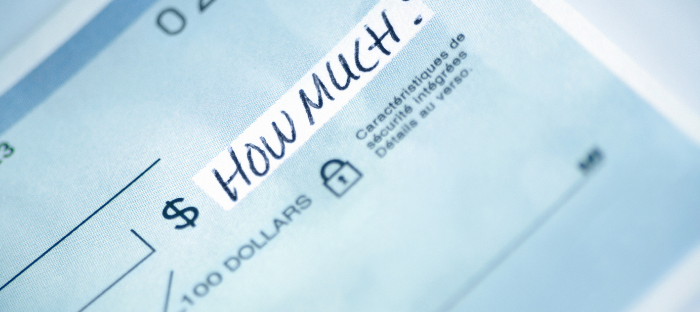
Be sure that your rental rate still allows you to make a profit after adding up related expenses. You might also want to give yourself some leeway by including built-in rent increases as part of the agreement or by choosing a suitable length for your lease.
It's also important to be realistic about your rental property. Don't expect to charge as much as you would for a mortgage payment each month just because the property is yours. Remember that you're not only paying for the roof over someone's head, you're also covering other costs associated with being a landlord.
When considering whether or not to become a landlord, there are a few things you should keep in mind. First and foremost, being a landlord can be time-consuming and it can require a lot of extra work unless, as mentioned before, you can hire a super. The super's compensation, or yours if you're the one doing the work, also needs to be something you need to account for.
Take a look at the other properties in the area, estimate what the average pay is like, and deduct whether you are planning to charge a reasonable amount. You can use a real estate website to find out what the rent around an area is like, compare what you offer to the other buildings, and come out with an almost complete picture of what people expect to pay.
Finding a renter?
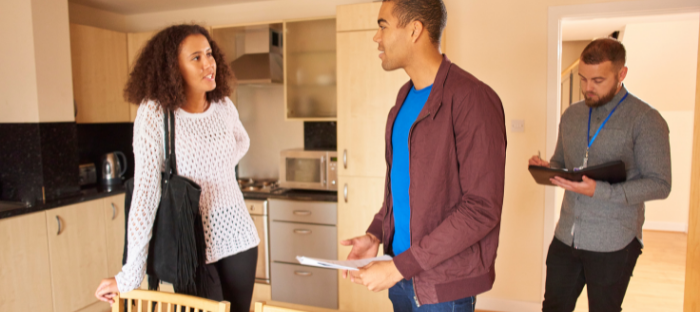
Once you've decided how much rent to charge, it's time to start advertising. You can list your rental unit in newspapers, online, or by word of mouth. If you're renting a vacation property, AirBnb is a great choice too but don't let it be your only way of getting the word out, they take a chunk of what the renter pays.
It's important to remember that being a landlord can be a time-consuming and often frustrating task. Before taking on the responsibility, make sure you're prepared for the extra work involved. But remember that you're not left to fend for yourself, you can get in touch with real estate professionals that can funnel responsible tenants to you.
As a landlord, you'll have the opportunity to meet new people and build a customer base of renters. There are also tax advantages associated with being a landlord, which can help offset the costs of owning rental property.
Being a landlord is not for everyone. If you're uncomfortable with having strangers in your home or unable to deal with a certain level of chaos involved with tenants, you might want to think about hiring someone else to manage the place. That being said, if you have the patience and a plan in place for the inevitable issues that will arise, it can be a lucrative and rewarding business decision. Rental income is nothing to scoff at.
What is involved in signing a lease?
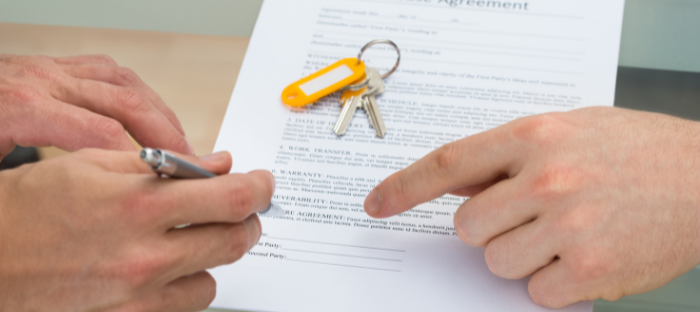
When signing a lease, both parties should sign, detailing the time period of the lease agreement. The tenant also needs to pay any requested fees and deposits. A copy of the signed contract with all parties' signatures should be made and given to each party. Lease agreements typically include provisions for the following:
The duration of the rental agreement, the amount for the security deposit, whether pets are allowed on the property, necessary repairs, late payment fees, cancellation policies, amenities included in the rent price, utilities that are the responsibility of the tenant, location of the building, name and contact information of the landlord, inspection policies, renter's insurance.
Once you have decided who your tenants will be, it is time to draw up a lease agreement. This document will outline the expectations and responsibilities of both parties, protecting you as the landlord in case something goes wrong. It's important to have a lease agreement in place before anyone moves into your property, as it can help avoid confusion and conflict down the road.
If you're not sure where to start, you can find a basic model online or hire an attorney to help you. Make sure that everything important is in writing, with rules clearly outlined, making proper notice of all participants' expectations including the due date of payments. This new tenancy agreement should follow local laws in the interest of both the landlord, you, and your tenant.
How to collect rent every month from tenants?
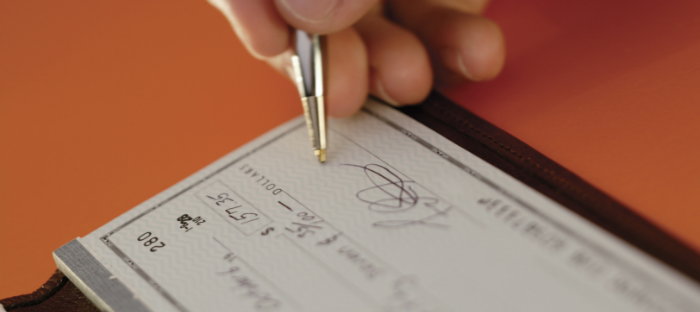
The best way to collect rent from your tenants is by setting up an automatic payment system. It's easy for both you and the renter, and there are several options available including PayPal which will seamlessly integrate into your website, keeping records of each transaction. Some landlords also accept INTERAC e-Transfers, but to be safe, it's best to ask a real estate professional what the best method would be.
Another option is to offer two choices when accepting fees: online or in person. This can be helpful for those who don't have a PayPal account or live far away and wouldn't be able to make it to your place in person. It's also a helpful way of tracking payments, as you'll know exactly who has paid and when.
Landlords should always be aware of the late payment fees they are entitled to. Once a unit is rented, these rules start applying and you need to establish a regular date for payment. As part of your rules, you should also provide receipts. If the rent is not paid by the end of the month, you should start sending reminder emails and/or calling the tenants to ask when you can expect payment. This usually does the trick and most people will respond within a few days.
Of course, understanding if something is impeding your tenant's ability to pay is important and can help you alleviate some of their burden with a temporary rent reduction to ensure that they can stabilize their financial situation and pay you back later. Make sure that you note in agreement in writing to protect yourself. No one really wants to sift through another round full of tax return documents, applications, or go straight into a potentially messy dispute resolution situation.
What about problems that may arise during the rental period?

It's important to communicate with your tenants regularly. Not only does this help build a great relationship, but it also ensures that all rules are understood and followed by everyone involved. If you notice anything suspicious or out of the ordinary, you should let them know. For example, if at any time someone other than the tenant is living in the property, by law the tenant is required to let you know in advance. If this happens without your knowledge, it could lead to non-renewal of tenancy or eviction. Regardless, always keep track of any changes that affect the tenancy agreement in writing.
To conclude...
It's important to have a good understanding of the basics of being a landlord, especially on the financial side, before taking on any tenants. By following these simple tips and using a well-drafted lease agreement, you can protect yourself from any possible legal issues and ensure that your tenant is happy and comfortable in their new home.
The difference between a good landlord and a bad one has to do with much more than simply cashing checks in every month.
View All Homes For Sale in Greater Vancouver >>>
About Search Home Listings
SearchHomeListings.ca has simplified the home buying and selling process by giving you superior tools with up-to-the-minute information including active homes for sale, sold homes, market reports, and a home valuation tool! We have a team of success managers on standby to support you with setting up your saved home search and agents ready to take you out on a tour. Tap into our industry experts from inspectors, to contractors to interior designers to provide you with the best prices and service possible. Everyone attached to our website has been rigorously vetted and is made up of caring, knowledgeable professionals that work tirelessly to help you to make your home buying experience as stress-free as possible. Contact us today to see how we can help!
Sites We Follow
Categories
Recent Posts






